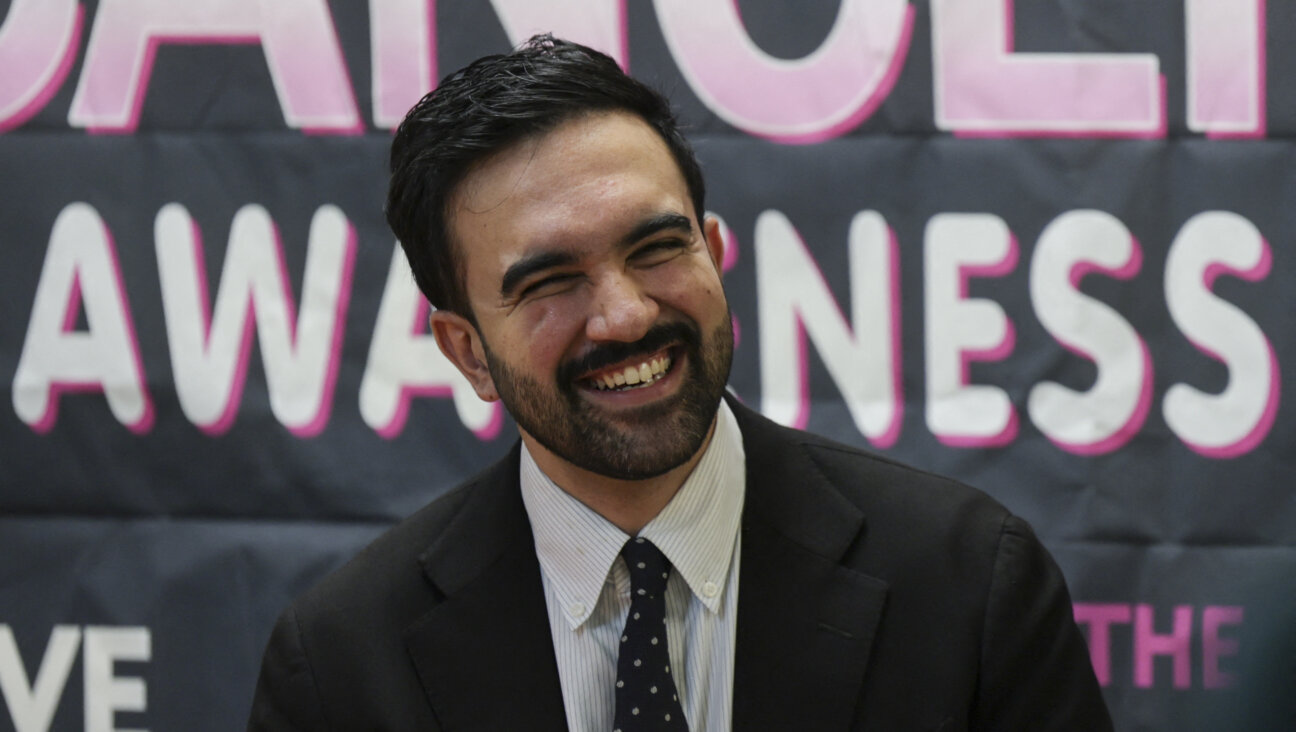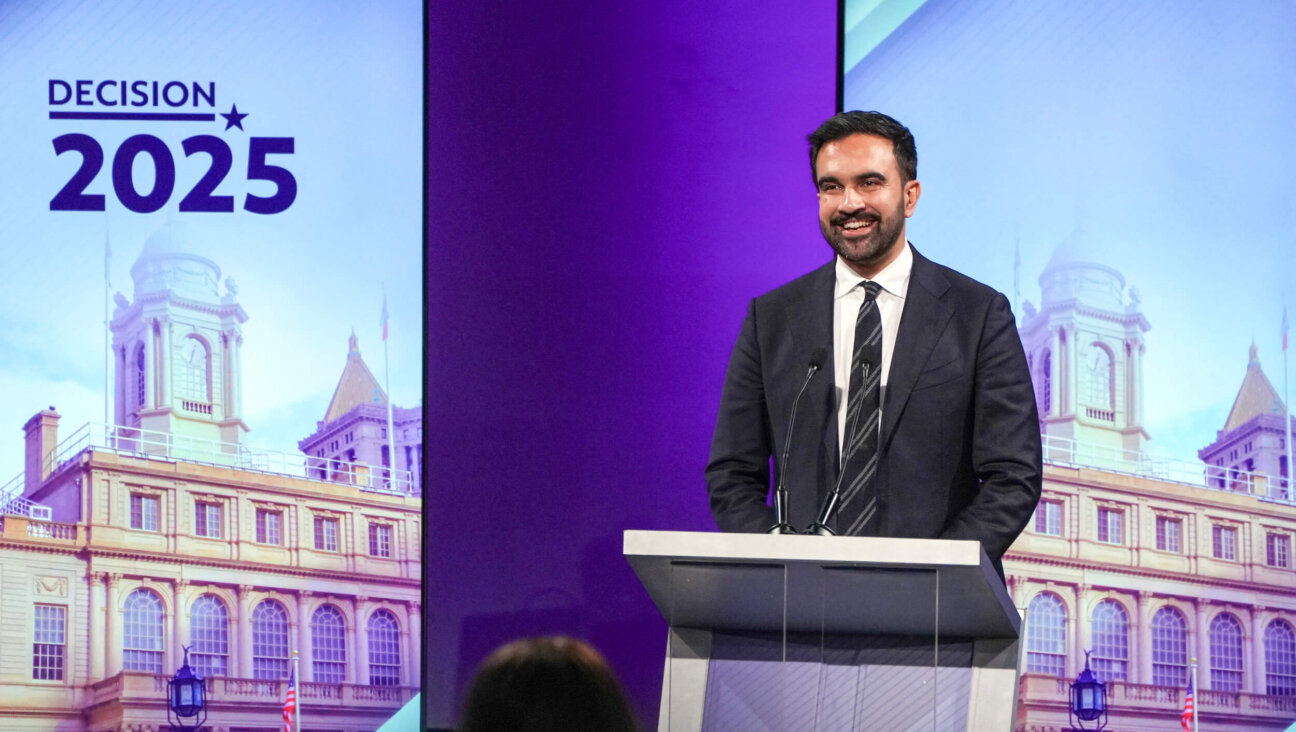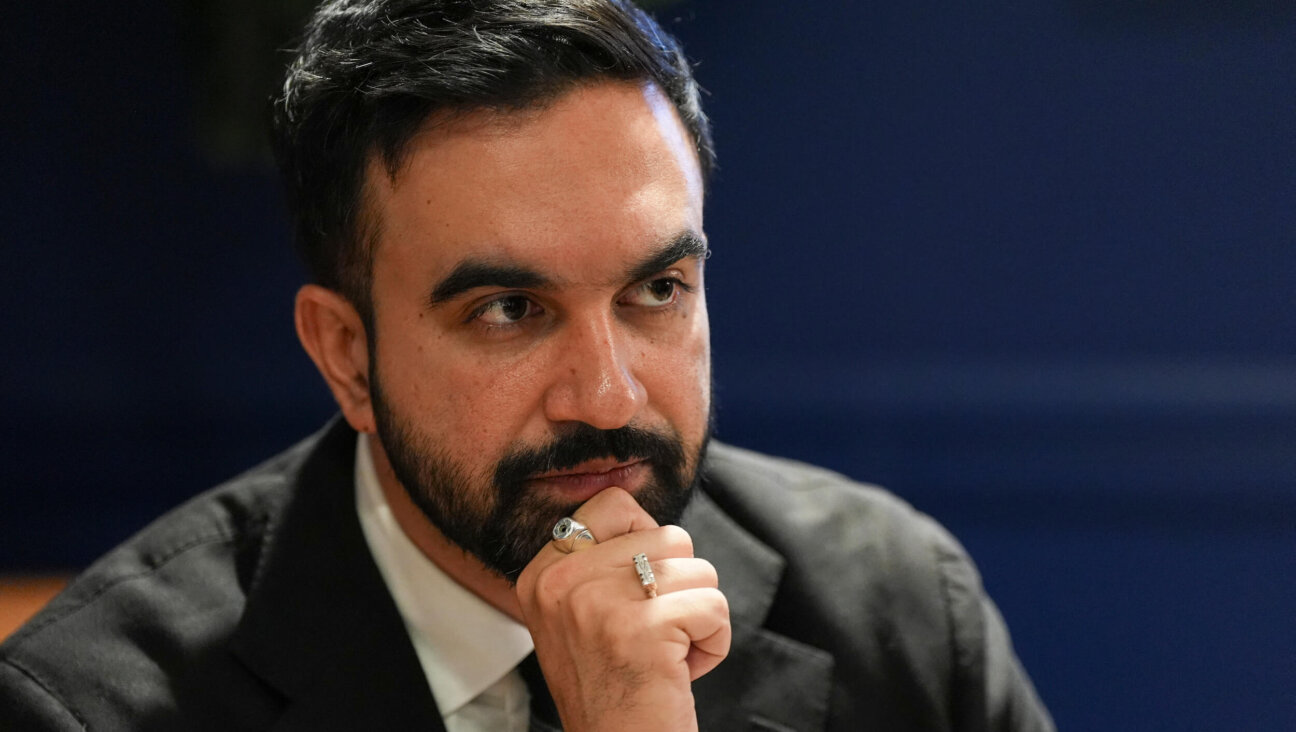Why Israel’s #BringBackOurBoys Is Offensive

Graphic by Angelie Zaslavsky
Natan Sharansky holds up a #BringBackOurBoys sign on behalf of the Jewish Agency / Twitter
What’s in a hashtag?
Soon after news broke about the three kidnapped Israeli teens who went missing in the West Bank on Thursday night, Israel supporters began using #BringBackOurBoys to signal their desire to see the students safely returned to their homes. That hashtag made the Internet rounds with amazing speed. It filled first my Twitter feed, then my Facebook feed, and finally my email inbox.
I wish it hadn’t.
Not because #BringBackOurBoys was quickly appropriated by pro-Palestinian activists who used it to highlight the plight of Palestinian boys detained or killed by Israel — that was predictable enough — but because the Israeli use of the hashtag was itself an appropriation.
I’m talking, of course, about the #BringBackOurGirls campaign launched to help find Nigerian schoolgirls kidnapped by radical terrorist group Boko Haram in April.
Following on the heels of the massive visibility of the #BringBackOurGirls campaign, I understand that any Israeli social media maven would be tempted to draw a comparison between Nigeria’s kidnapped girls and Israel’s kidnapped boys. For one thing, the Nigerian campaign has seeped pretty thoroughly into Israelis’ consciousness: witness the spookily prescient scenario outlined just ten days ago by Mossad Chief Tamir Pardo, who argued against Habayit Hayehudi’s anti-prisoner-swap bill by asking, “What will you do if in a week three 14-year-old girls will be kidnapped from one of the settlements? Will you say there is a law, and we don’t release terrorists?” For another thing, it’s tempting to use a hashtag that everyone will instantly recognize — one that already comes with a built-in semantic trigger, strengthened over the course of months, for worldwide empathy and action.
But that temptation should have been resisted, I believe, for one simple reason: It’s wrong to capitalize on the virality of one nation’s desperate and grief-soaked social media plea in order to increase the virality of your own campaign. Especially when that initial plea has yet to be answered.
Let’s remember that the over 200 Nigerian schoolgirls — kidnapped while they were in the middle of trying to take a physics test — are still missing. These days, news outlets are saying (when they bother to say anything at all about the girls) that they may well remain missing forever. So imagine that you’re the mother or father or sister or brother of one of these girls. While your crisis is still going on, while your grief is still fresh, while you’re finding it increasingly difficult to focus the world’s attention on your abducted girl — suddenly, another nation is co-opting your social media campaign to focus attention on its own kidnapped kids. How would you feel?
It goes without saying that I, like everyone else, very much want to see the three Israeli teens — Eyal Yifrach, Gilad Shaer and Naftali Frankel — safely returned to their homes and to their families, as every child deserves to be.
But I wish that we, as social media users, would be a little more aware of the damage we may cause with our own words when we insensitively hijack another nation’s tragedy to rally support and attention around our own tragic nightmare.
















